Waste & Toxics
Out of sight, out of mind, but rubbish really starts to cause trouble after it disappears from your pavement. Rotting waste chokes our landfills, degrading into dangerous gases and adding to everyone’s municipal bills. The more you know about waste and toxics, the more you will know what to dispose of where – and what to not keep anywhere.
Evaluate your consumption
Set your goals
-
No Cost
-
Low Cost
-
Invest to save
What can you do?
-
- No Cost
- Low Cost
- Invest to Save
Things you can do
A little bit of time and a lot of knowledge will turn your home into a lean, mean recycling machine.
WHAT THE NGEWANA FAMILY DID
They turned their waste into fertilizer for the garden and jobs for South Africans, while sparing municipal landfills and the atmosphere from the burden of their refuse.
Most of the waste that used to go to the dump is separated for municipal recycling, the compost heap or the worm farm from Wizzard Worms. Postwink colour-coded bins in the kitchen handily keep recyclables and most kitchen scraps out of the rubbish. The family is also breathing easy in their newly painted house, knowing that the no-VOC paints on their walls from Breathecoat don’t contribute to asthma or smog. And they’ve switched to biodegradable, non-toxic cleaning products from EcoSmart and Better Earth.
Watch the ‘webisode’ to see how they did it.
What about you?
Below are some ideas of things you can do. If you have more ideas, join the conversation and share!
-
No cost
Change habits to save at least 10% -
Low cost
Spend under R1000 to lift savings to about 30% -
Invest to save
Invest more to take savings up to 50% or more
-
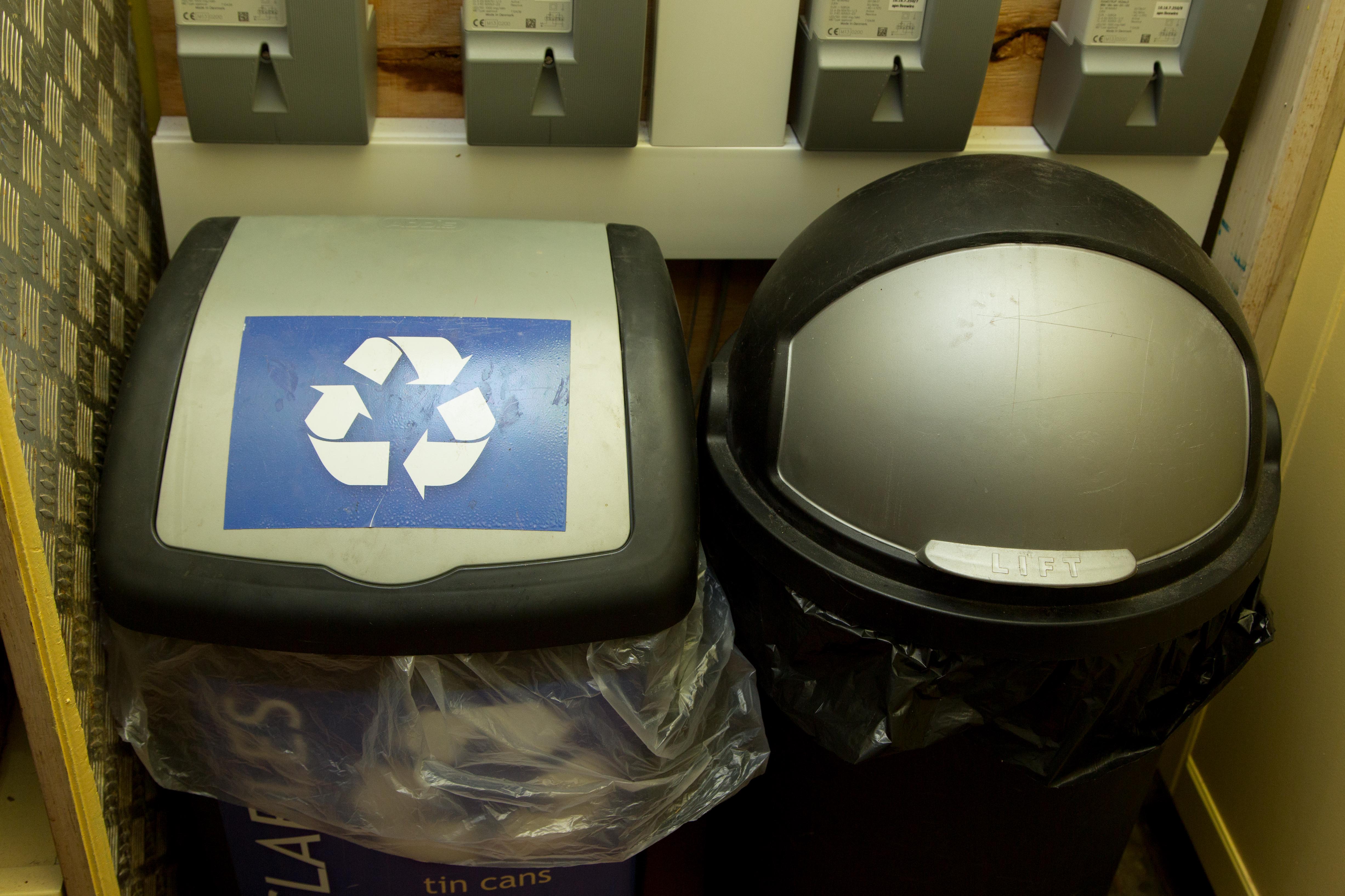
Reduce, reuse and recycle – in the right order
Recycling is nice, but it’s not the starting point in a green home. Take a look at the glass bottle: Recycling that bottle will save some energy and mining of raw materials. But the recycled glass still needs energy when re-melted at 1 500 degrees. Reusing a bottle is better. Refilling it with water or buying returnable cool-drink and beer bottles saves the manufacturing of a replacement bottle. Reducing is best. Drink a glass of tap water instead of a bottled drink and no packaging energy or raw materials are used at all to satisfy your thirst. That’s healthier for both the environment and for you!
Will do 2Doing this 4
-
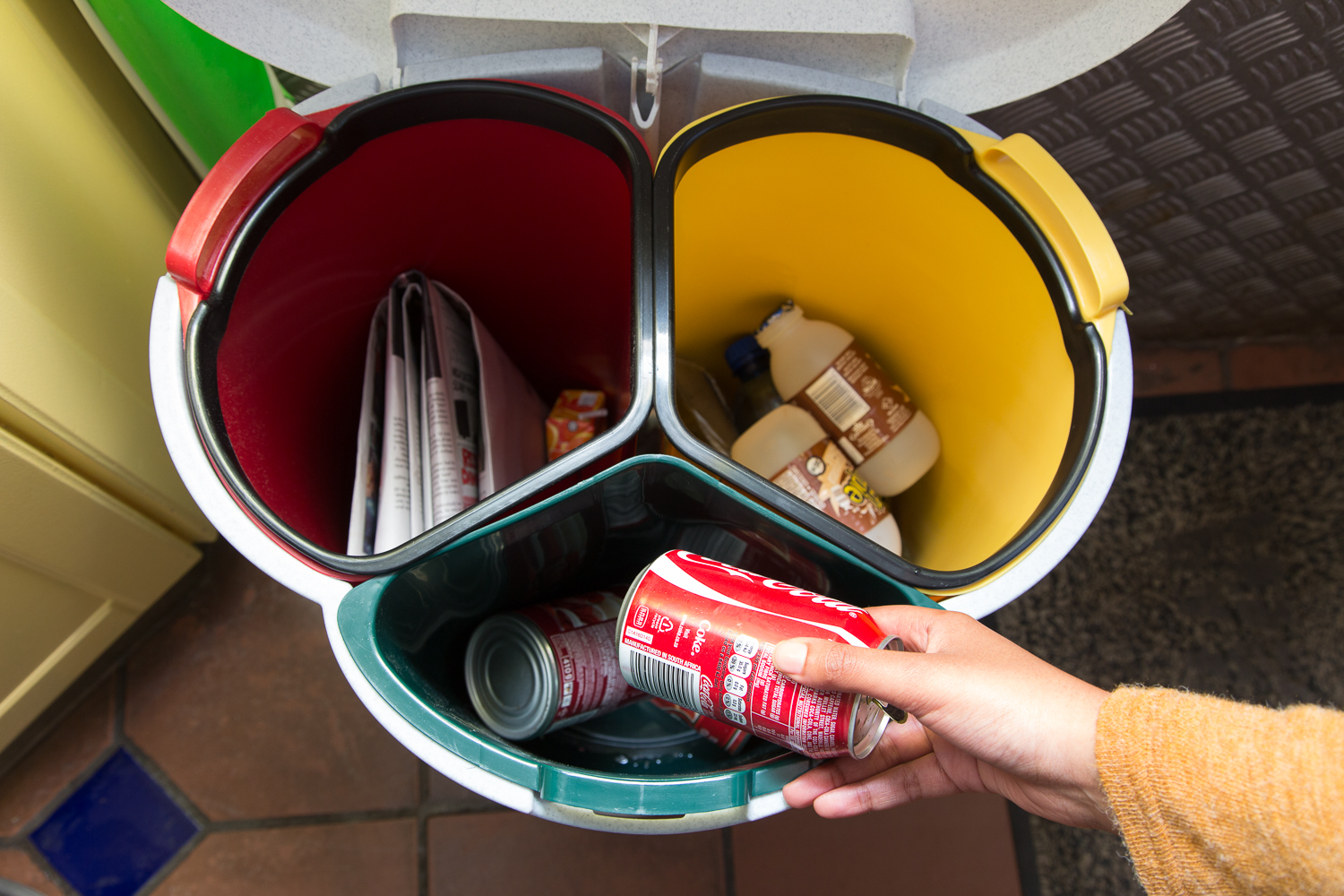
Help the recyclers by separating your waste
Some municipalities offer recycling bags for kerbside collection in some areas. Some communities have private businesses that will pick up your recyclables for a fee. But nearly all South African neighbourhoods have an army of informal recyclers working hard to process our waste. Give them all a hand. Valuable paper and corrugated cardboard becomes worthless if dirty. Separate them to place beside your bin. Putting aside plastic bottles, food tins and aluminium cans also spares hawkers from digging in your bin. Glass is usually too heavy for recyclers’ trolleys. Save it to take to a glass recycling bank.
Will do 2Doing this 4 -
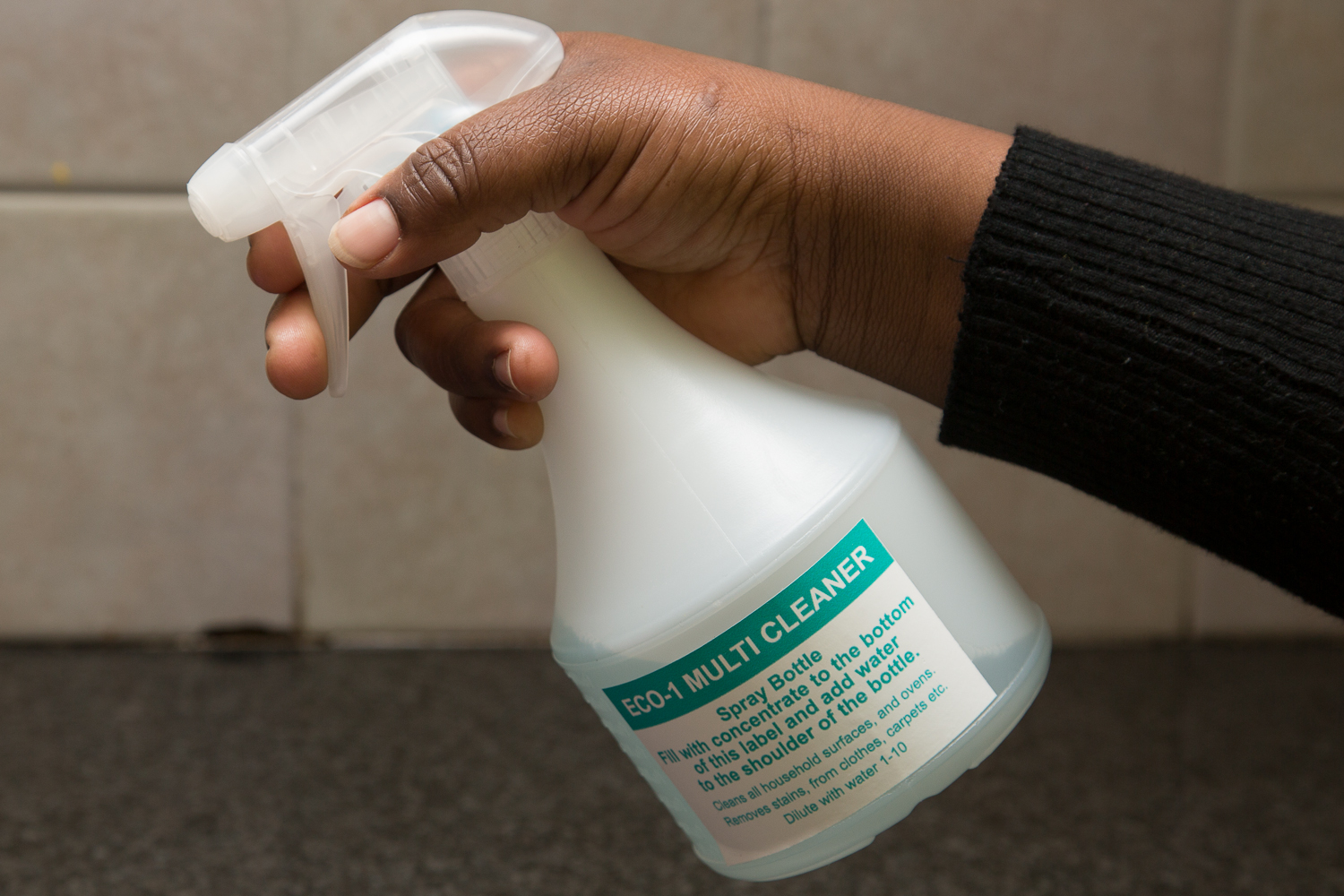
Keep toxics out of your cupboards
The list of unhealthy chemicals in cleaning products is very long, and few labels list every ingredient, but you can make a start at greening your cleaning with a few basic guidelines. First, only buy and use what you really need. Fabric softener and furniture spray for dusting are relatively easy to live without. Second, avoid a few common ingredients: ammonia (ammonium hydroxide), formaldehyde (or formalin) and bleach (sodium hypochlorite). Third, look for unscented and low-odour products; if it has a strong smell or fragrance, it’s better not to breathe it in. Fourth, avoid sprays, which increase the quantity of chemicals you can inhale. If you want more detailed information on chemicals in your cupboards, see this EWG Guide to Healthy Cleaning.
Will do 2Doing this 0
-
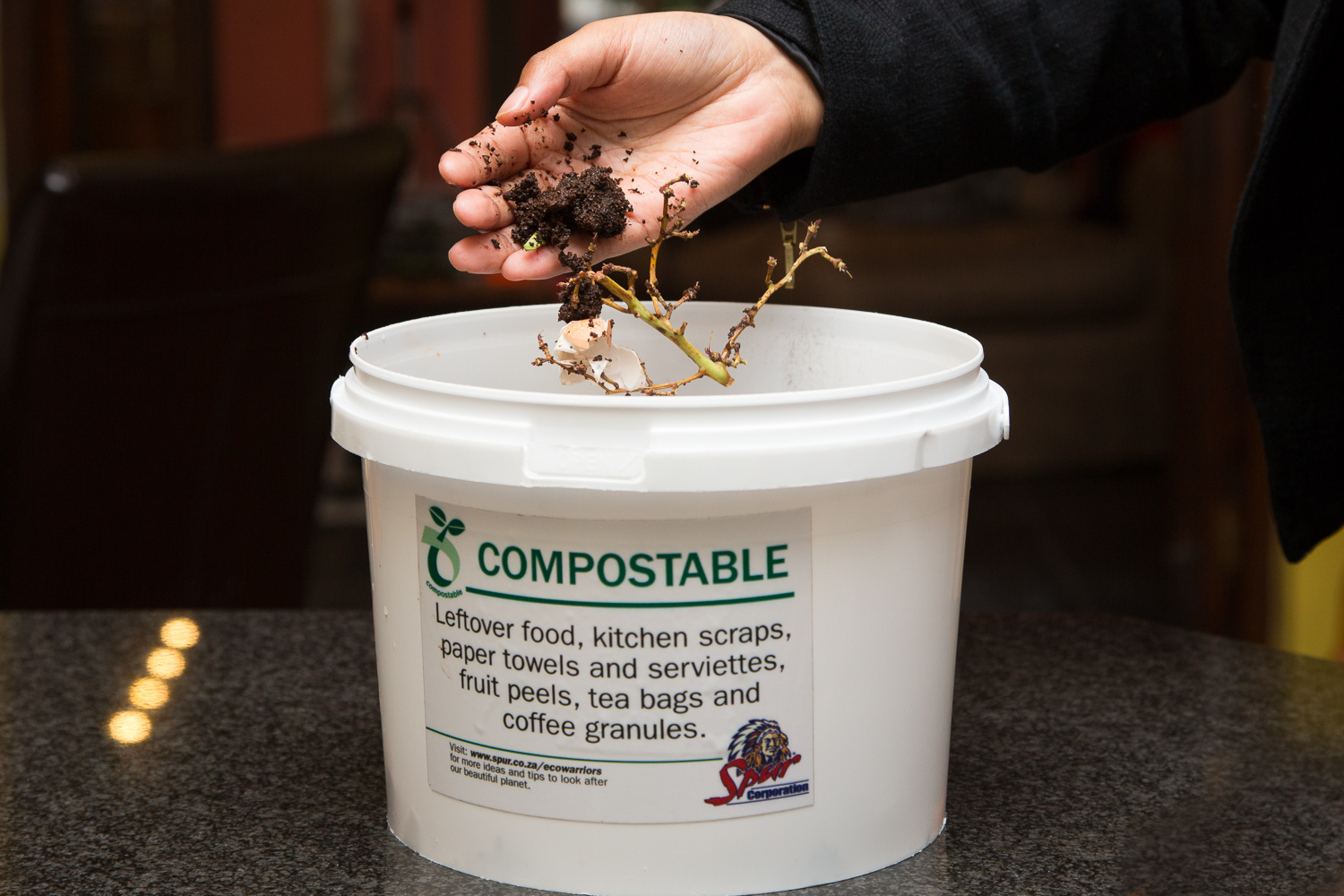
Keep your biodegradables in the biosystem
One of the most dangerous myths about the environment is that it is better to send something biodegradable to a landfill than something that won’t decompose. That’s mostly a load of rubbish. Deep in a landfill, food and garden waste – especially grass clippings – break down into methane, a potent greenhouse gas. Composting at home or sending greens for municipal composting preserves both the climate and precious landfill space. For composting kitchen scraps, worms are a nearly miraculous fertilizer manufacturers. ‘Worm farms’, usually special tray structures, cost about R1 000.
Will do 0Doing this 1 -
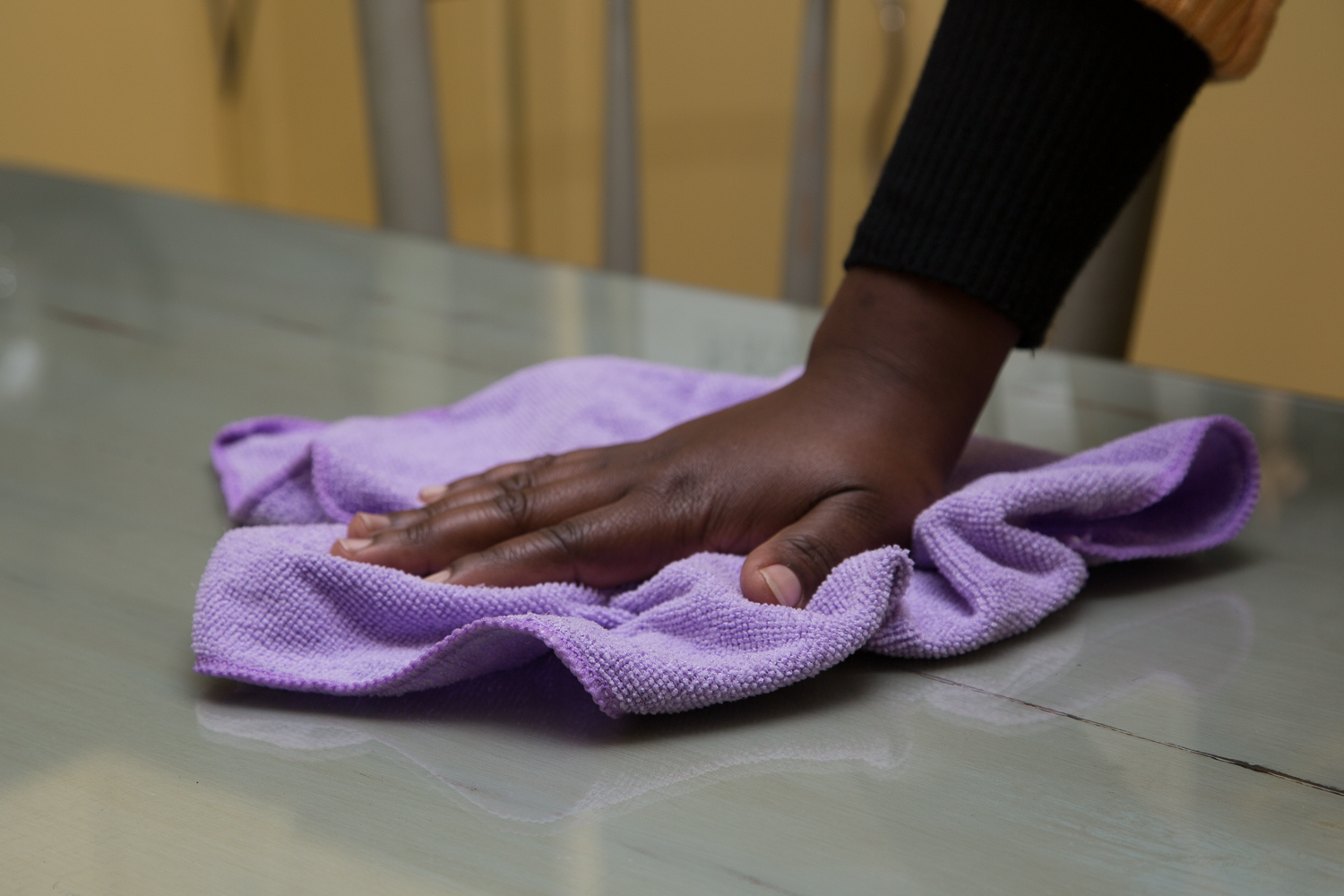
Use microfibre instead of chemicals for cleaning
The purest cleaning chemical of all is H2O, and a relatively new kind of cloth makes water an effective cleaner too. Microfibre cloths are made with fibres 100th the diameter of a human hair, split to make them grab hold of dust, oils and dirt better. The smoothest microfibre cloths, slightly dampened, can clean windows, TVs and PCs without any chemicals. Follow up with a dry microfibre cloth to polish. Microfibre mops and dusting cloths can reduce or eliminate the need for chemicals for most of your other household cleaning. They can be washed repeatedly, but not with fabric softener. Find them alongside dish cloths in most large shops.
Will do 0Doing this 2 -
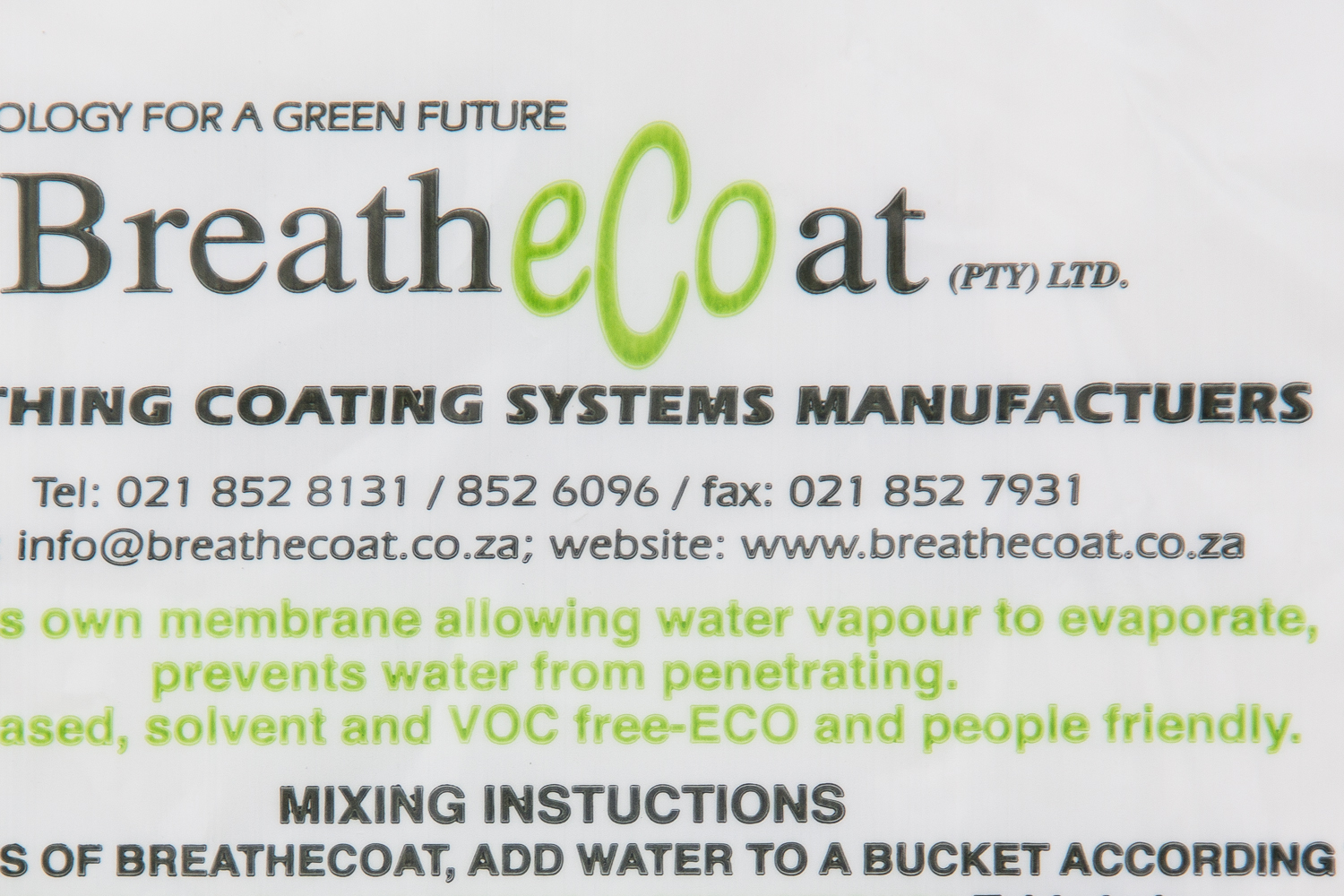
Breathe easy with low-VOC paints
Your nose knows Volatile Organic Compounds, even if you’ve never heard of VOCs. They create the ‘new car smell’, most ‘air freshener’ type scents and the odour of fresh paint. Many VOCs are also responsible for smog and irritation or damage to eyes, lungs and other organs. Some cause cancer. It’s easy to keep air fresheners out of your home, but until recently, you had little choice when painting. Now you do. Most manufacturers sell low-VOC or no-VOC versions of their paints. Some companies sell only no-VOC products
Will do 0Doing this 1
-
Buy quality and keep it
The ‘embodied’ energy that went into making the stuff in your cupboard may be even greater than the energy that goes into your geyser. Make sure that you buy only what you need and buy it for keeps. Look for quality in everything from fabrics to construction, for cellphones and PCs that can be easily upgraded and appliances from established brands that keep spare parts available. Every time you opt to repair rather than replace, you keep jobs in South Africa, resources in the ground and pollution out of the air.
Will do 0Doing this 2 -
Upgrade your tap water
South Africa’s major cities pride themselves on excellent drinking water quality. Avoid bottled water which wastes energy, plastic, money, even water – as 3 litres are used for making each 1 litre bottled. If tap water taste causes you to buy bottled water, improve the taste at the tap. An activated-carbon filter can remove the chlorine taste and will quickly pay for itself as you stop buying water at the shops. The bottled water you buy may be only filtered tap water anyway.
Will do 0Doing this 0
Resources
-
PETCO
http://www.petco.co.za/PETCO aims to minimize the environmental impact of post-consumer PET on the South African landscape
-
Where to recycle your paper and cardboard
http://www.paperpickup.co.zaThis Mondi-sponsored tool will tell you whether you have kerbside recycling and how to take advantage of it. In addition, you can locate charities and schools near your home that collect paper to raise funds.
-
Tips for Safer Cleaning
http://watoxics.org/toxicswatch/top-10-tips-for-safer-cleaningThe Washington Toxics Coalition offers concise advice on safe cleaning that is as relevant in South Africa as it is in the United States.
-
For useful tips and information regarding recycling
http://www.recycling.co.za/The National Recycling Forum (NRF) is a non-profit organisation created to promote the recovery and recycling of recyclable materials in South Africa.
-
Where to recycle your bottles
http://www.theglassrecyclingcompany.co.za/If you’re not sure where to take your glass for recycling, enter your suburb on the Glass Recycling Company’s Find a Glass Bank tool to get directions.
-
Fact sheet: How easy it is to recycle
http://mygreenhome.org.za/wp-content/uploads/2014/06/PETCO-Fact-Sheet-Domestic-Users.pdfPETCO
Sponsored Products
Products used in the Ngewana green home makeover. Please note that this is not a product endorsement.
-
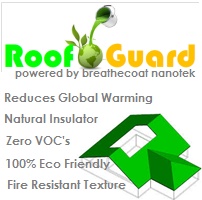 Roofguard - roof paint from Breathecoat NanotekReduces global warming, natural insulator, zero volatile organic compounds (voc), 100% eco friendly.
Roofguard - roof paint from Breathecoat NanotekReduces global warming, natural insulator, zero volatile organic compounds (voc), 100% eco friendly. -
 Eco Smart 250 Cleaning KitThree concentrated liquid cleaning products, laundry powder, endorsed by Wildlife & Environment Society SA.
Eco Smart 250 Cleaning KitThree concentrated liquid cleaning products, laundry powder, endorsed by Wildlife & Environment Society SA. -
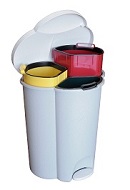 Postwink Trio Pedal-Push Home recycling Bins40Lt Recycling bin ideal for home kitchens, with 3 sturdy removable plastic liners: yellow, red, green.
Postwink Trio Pedal-Push Home recycling Bins40Lt Recycling bin ideal for home kitchens, with 3 sturdy removable plastic liners: yellow, red, green. -
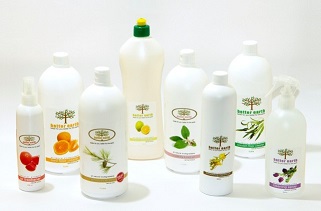 Better Earth Eco Cleaning ProductsThese gentle, biodegradable products for dishes, floors, laundry, bathrooms, general purpose cleaning.
Better Earth Eco Cleaning ProductsThese gentle, biodegradable products for dishes, floors, laundry, bathrooms, general purpose cleaning. -
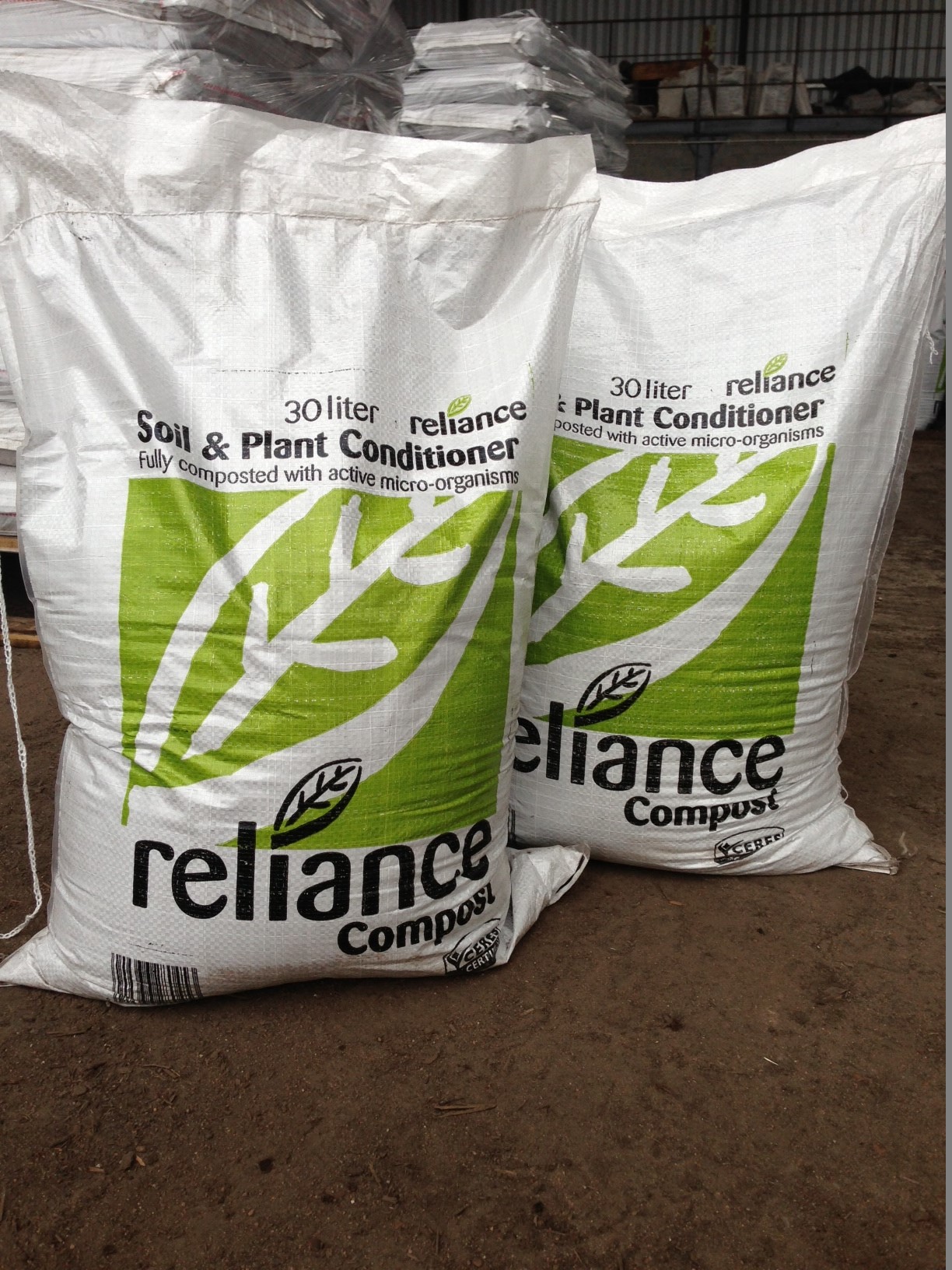 Compost from Reliance100% certified organic compost. The Soil & Plant Conditioner, 12mm sifted is ideal for general everyday gardening.
Compost from Reliance100% certified organic compost. The Soil & Plant Conditioner, 12mm sifted is ideal for general everyday gardening. -
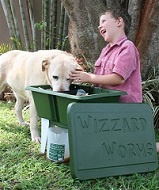 Wizzard Worms Small Green Worm FarmEasy to operate domestic worm farm recycling kitchen waste to produce worm wee and worm worked compost.
Wizzard Worms Small Green Worm FarmEasy to operate domestic worm farm recycling kitchen waste to produce worm wee and worm worked compost.
Join the conversation